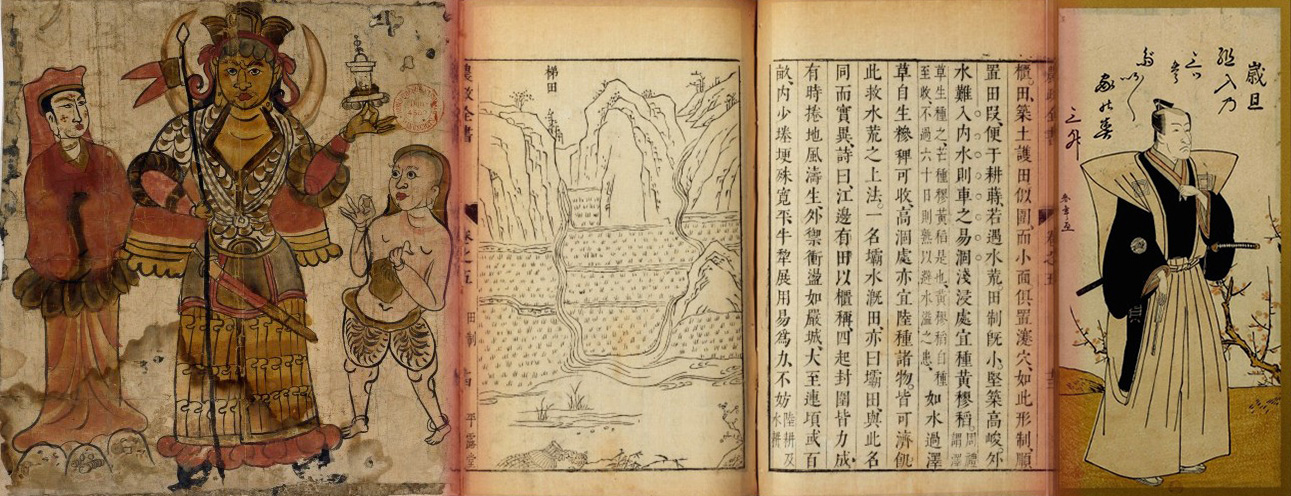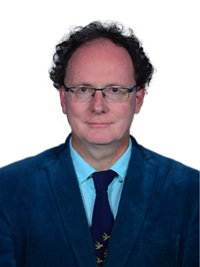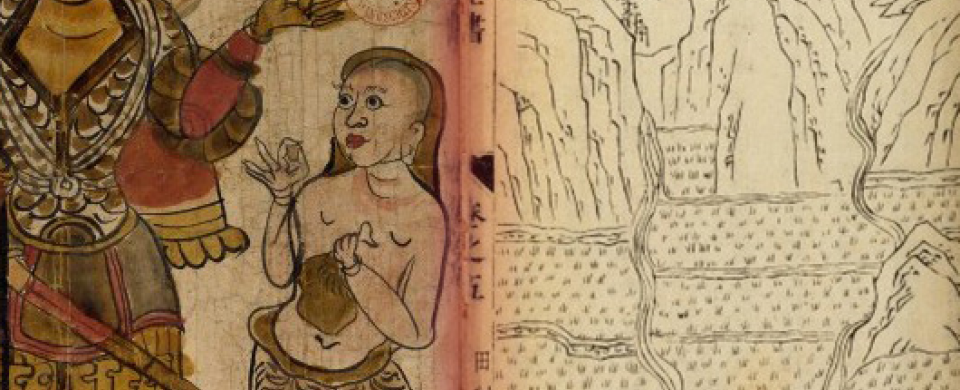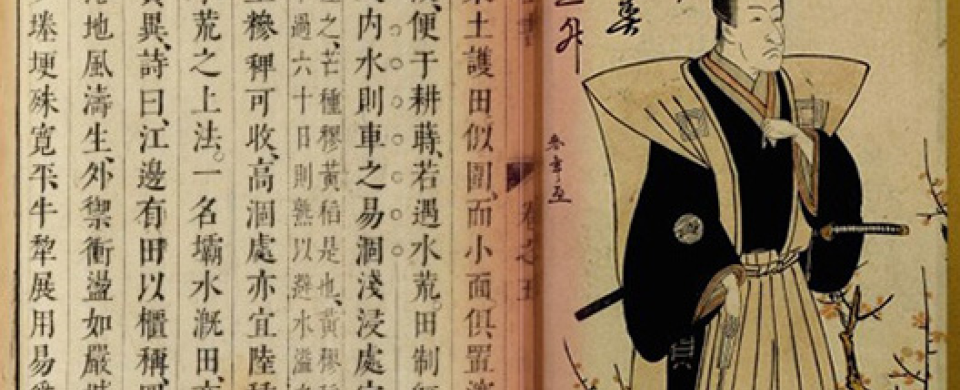
Master's in Asian studies
Université PSL

As the fruit of close collaboration between the EPHE-PSL, the École française d'Extrême-Orient (EFEO) and the École des Hautes Études en Sciences Sociales (EHESS), this multi-disciplinary training program for research in the humanities and social sciences aims to train researchers and experts capable of developing a critical approach to Asian societies, based on their particularities and in the long term.
The aim of this master’s program is to give students the tools they need to understand and study the Asian world in all its complexity and in the long term. The Asian world is understood here in the broadest sense, from Asia Minor to Japan, and from Siberia to Indonesia. Students will acquire in-depth knowledge of specific periods, regions and themes, as well as disciplinary skills in fields such as history, sociology, anthropology, geography, economics, paleography, art history, archaeology and religious studies. Including almost 100 professors working on Asia, the teaching team is developing a demanding training program in conjunction with leading research units in the field of humanities and social sciences applied to the Asian area.
The “Asian Studies” master’s program is divided into two tracks: “History, Philology and Religions: Texts, Archaeology, Systems of Thought*”, run by EPHE-PSL and EFEO, and “History and Social Sciences: Fieldwork, Texts and Images” by EHESS.
Run by the EPHE-PSL and the EFEO, the “History, Philology and Religions: Texts, Archaeology, Systems of Thought*” program is aimed at students wishing to carry out research primarily on the ancient, classical and pre-modern periods of the different cultural areas of Asia, based on an in-depth understanding of written or material sources and ancient, classical and pre-modern languages, and founded on methods specific to philology, paleography, archaeology and epigraphy. Emphasis is often placed on the analysis of primary sources written in different Asian languages and in ancient or pre-modern scripts. Another specific feature of this course is the interest given to the study of religious phenomena and systems of thought in Asia in the long term.
Offered by EHESS in collaboration with EFEO, the “History and Social Sciences: Fields, Texts and Images” program is aimed at students wishing to develop their research into modern and contemporary Asia. At a crossroads of fundamental disciplines and cultural areas, where these are approached through their own methods, this course focuses on multiple social issues based on global and resolutely comparative approaches, highlighting circulations and transfers, as well as the dialogue and interdisciplinarity of the social sciences.
Pedagogical objectives
Over the course of four semesters, students are expected to acquire:
- In-depth knowledge of a specific field of research related to Asian studies.
- Methods of analysis and presentation of a scientific problem in the humanities and social sciences.
- A good command of one or more foreign languages - modern, classical, ancient - depending on the field of study, necessary for any scientific research work on Asia.
- The tools required for academic research.
Two courses, a common core, cross-disciplinary seminars
The program is structured around two tracks, one run by EPHE PSL and the other by EHESS (both together with EFEO), reflecting different scholarly traditions in the approach to Asian societies. While the discipline of history is the common denominator of these two training courses, they are nonetheless distinct yet complementary. They differ in terms of disciplinary approaches, reference periods, methodological tools of analysis and the themes covered. The curriculum for both the EPHE-PSL and EHESS programs is based on a compulsory core seminar, drawn up collectively by the teaching team. It is offered to new students in both programs, to introduce them to the methods and major issues involved in the field of Asian studies. Since the start of the 2022-2023 academic year, this interdisciplinary core seminar has been held on the Campus Condorcet, focusing on cross-disciplinary themes and enriched by contributions from outside specialists. In addition, the EPHE-PSL offers seminars on thematic and methodological cross-disciplinary topics that are more specific to Asian studies in the 'EPHE-PSL' pathway in Asian studies, a tailored methodology course focused on the various topics of the students: different types of sources, research typologies, geographical areas in Asia during ancient, classical, and pre-modern periods, etc. For both pathways, mobility projects (internships, gap years, fieldwork) to Asia are strongly encouraged. These training and research stays are supported by the centers of the EFEO and UMIFRE, as well as their partner institutions.
For Master's students in Asian Studies from both pathways, there is a research notebook, that provides practical and useful information about events, funding, internships, languages, etc.
* Subject to accreditation.
Recommended license mentions for entering the M1
- Bachelor’s degree in Humanities, History, Human Sciences, Anthropology, Ethnology, Art History and Archaeology, LLCER.
- First cycle degrees that demonstrate the acquisition of competencies comparable to those of graduates from the aforementioned programs will also be considered carefully (e.g. first cycle degree from the École du Louvre).
Recruitment procedure:
Based on application files.
Expectations for entry into M1:
- To demonstrate the acquisition of university and/or personal knowledge and skills in at least one region of Asia.
- To construct and propose a coherent research project in line with one’s training and skills.
- Proficiency in one or more Asian languages, unless otherwise advised by the tutor considering that the student may acquire the necessary language skills during their master's studies.
- To master written expression in French. For foreign candidates without a certification of proficiency in French (level B2), a test should be taken at the start of the academic year, and learning French as a foreign language will be mandatory for those below level B2.
General criteria for evaluating applications in M1 Include:
- A tutor’s certificate.
- A cover letter.
- Research project with a signed agreement from the future tutor who will supervise the research and must belong to the program.
- A Curriculum Vitae.
- Copies of higher education diplomas; translations into French for foreign diplomas or, in the absence of it, in English.
- Copies of higher education transcripts (L1, L2, S5 of L3 are mandatory); translations into French for foreign diplomas or, in the absence of it, in English.
If you hold a bachelor's degree (bac+3) not recognized by the Ministry of Higher Education, please fill out and attach the Validation of Acquired Knowledge (VA) file to your application.
Composition of the recruitment committee:
11 members including 3 directors of studies from the EPHE-PSL, 2 lecturers from the EPHE-PSL, 4 lecturers from EFEO, 1 CNRS-EHESS research officer, 1 ATER from EHESS in charge of the core curriculum.
Recruitment calendar 2025/26
- from February 25th to March 24th, 2025
Recruitment for Master 1 takes place o "Mon Master," the national platform for master's programs.
IMPORTANT ! To find the various study topics in the Master of Asian Studies at EPHE, search under "Asian Studies." A search under a more specific term, such as the names of Asian languages and cultural areas (ancient, classical, and living) often does not lead to our Master of Asian Studies, for example: 'Chinese,' 'Vietnamese,' 'Tibetan,' 'Hindi,' 'Pahlavi,' 'Elamite,' 'Sanskrit.' To find the rich range of courses offered by the Master of Asian Studies at EPHE in these areas, first search under "Asian Studies" and then look for the courses and tutors for your preferred subject.
This platform is intended for:
- students who hold (or preparing for ) a national bachelor's degree or another diploma giving access to the master's program, whether they are French citizens or nationals of the European Economic Area, Andorra, Switzerland or Monaco;
- applicants of foreign nationality whose country of residence does not benefit from the Études en France scheme (list of countries available) on the Campus France website and the Études en France portal).
Applicants of foreign nationality (excluding nationals of the European Economic Area, Andorra, Switzerland or Monaco), whose country of residence does benefit from the Études en France program, as well as applicants for entry to the second year of a master’s degree, must submit their application on the PSL University TALENT recruitment platform.
Applications to the “Mon Master” website will open on February 25th, 2025. Applicants must go directly to the platform to apply for a Master 1 degree.
Information on the new system and timetable can be found on the Ministry of Higher Education and Research website..
Applicants excluded from the program and wishing to enter the second year of a master’s degree are invited to apply on the PSL University recruitment platform.
Each of the two training pathways, from M1 to M2, is structured in the same way, combining a core curriculum, specialization and research seminars, as well as foreign language courses. The first year involves the realization of a preparatory thesis, while the second entails the preparation and defense of a more in-depth research thesis. Furthermore, the new curriculum starting from 2025-2026 provides students with the opportunity to schedule their internships in semesters 1, 2, and 3, according to the opportunities that arise.
Master’s degree 1 (60 ECTS)
- Mandatory core courses and methodology sessions.
- 4-8 seminars of specialization or research of choice, or to undertake 1 internship and 3-6 seminars of specialization or research of choice.
- 1-2 foreign language courses (or French as a Foreign Language).
- 1 mini-research paper.
Master's degree 2 (60 ECTS)
- Mandatory core curriculum only for newcomers in M2.
- 3-6 specialization or research seminars, which you will have to choose, or to complete 1 internship and 2-4 seminars of specialization or research of your choice.
- 1 research thesis.
The master's program "Asian Studies" primarily trains students in research practices, for those aiming to continue their studies at the doctoral level (higher education and research), but also for those considering careers in contact with the research field (librarians, journalists, documentarians, secondary school teachers, curators, research or study engineers, etc.).
At the EPHE-PSL, the internationalization of our courses means that every student has the opportunity to undertake a study or internship mobility program.
The International Relations Department assists students in defining and implementing their projects, identifying the most appropriate financial instruments and schemes.
Holder of the “Welcome to France” label and the Erasmus+ 2021-2027 charter, the EPHE-PSL has also been welcoming a large and growing number of international students for many years.
Go to International relations
Download: Directory of financial mechanisms and instruments for international projects
Who should you contact? International Relations Department

